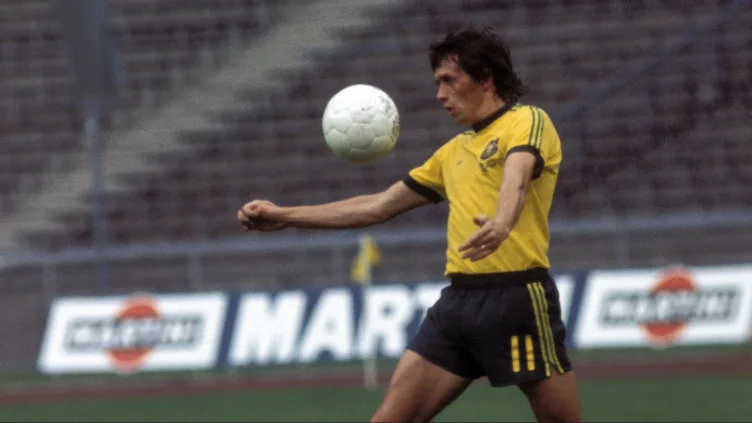In what’s become an all too frequent occurrence in 2023, Australian football has farewelled another of its 1974 World Cup pioneers with the passing of Attilla Abonyi, aged 76.
‘Atti’ grew from the ‘whippet-thin’ son of Hungarian migrants into the Socceroos all-time leading A-International goalscorer by the age of 27, a record he held for nearly thirty years. He was a prominent figure in the nations’ two coming of age tournaments, in Vietnam (1967) and West Germany (1974), and was an inaugural inductee into Football Australia’s Hall of Fame in 1999.
Andrew Dettre was Australian football’s pre-eminent journalist through its migrant-driven boom of the 1960’s & 70’s; in tow was his young son, Steve, a wide-eyed observer of Abonyi and his teammates through this golden age.
‘Atti’s defining memory shouldn’t be just one event. He was a significant contributor to the Socceroos, and also, from my point of view, to St George Budapest. I think one of the great legacies of Atti was the way he played: it was very continental, very technical’, Dettre told Box2Box.
‘Not everybody was in love with the way he played – my mother used to say that if he got a big crunching tackle in the first five minutes he’d linger on the touchline a bit too much for her liking! But then they’d forget about him, and he’d suddenly pop up and score a goal.’
‘He was one of my favourites to watch in action, and I think his legacy is that of an elegant style of play.’
Abonyi scored goals for fun at the 1967 Friendly Nations tournament in war-torn Vietnam in a Socceroos side under the management of Joe Vlatsis. Hat-tricks against New Zealand and Singapore saw the side through the groups, before another goal in the final ensured a 3-2 win over South Korea and the country’s first international trophy.
But it was the goal that he didn’t score, denied by the post in the 1974 World Cup against the hosts in West Germany, that Abonyi would go on to describe as his proudest moment.
‘What’s been lost a bit over the years was that the German crowd really wanted the German team to rip Australia apart. When they realised they weren’t going to do that at only 3-0, they switched, and really wanted to see Australia score’, said Dettre.
‘Adrian Alston also had a chance when he made Franz Beckenbauer backpedal furiously before he had a shot wide. I think we tend to forget how well the Australian team played in that final twenty minutes, especially with that amazing chance to Atti.’
At club level, Abonyi remained close to his Hungarian roots. Debuting for Melbourne Hungaria aged 15 in 1962, he’d ultimately lead them to their first Victorian State title in 1967. A move north to St George Budapest (1969-76) saw a further three New South Wales State titles, before a career denouement at Sydney Croatia (1977-79).
‘He was adopted by the Hungarian community in Sydney; he was a good Hungarian boy, made good in a foreign land. Back then St George had a wonderful club house in Hurstville, which was the centre of the Hungarian community, and Atti was dearly loved.
‘He was also regularly cursed when he wasn’t scoring enough goals for their expectations – we sometimes tend to gloss over these things and think these guys were god-like characters, but they were human beings as well.
‘He was a tailor by trade; I remember once going with my dad to where he was working, somewhere off George Street, and was amazed by one of those giant machines that cut 70-odd layers of cloth in one go. He was just slicing through this thing like he used to slice through defences.’
A career in management saw him return to St George and Sydney Croatia, but failed to take flight – ‘he was a naturally gifted player, so it was very hard for him to explain what he did in the box because he was so intuitive’ – before later settling in Coffs Harbour.’

